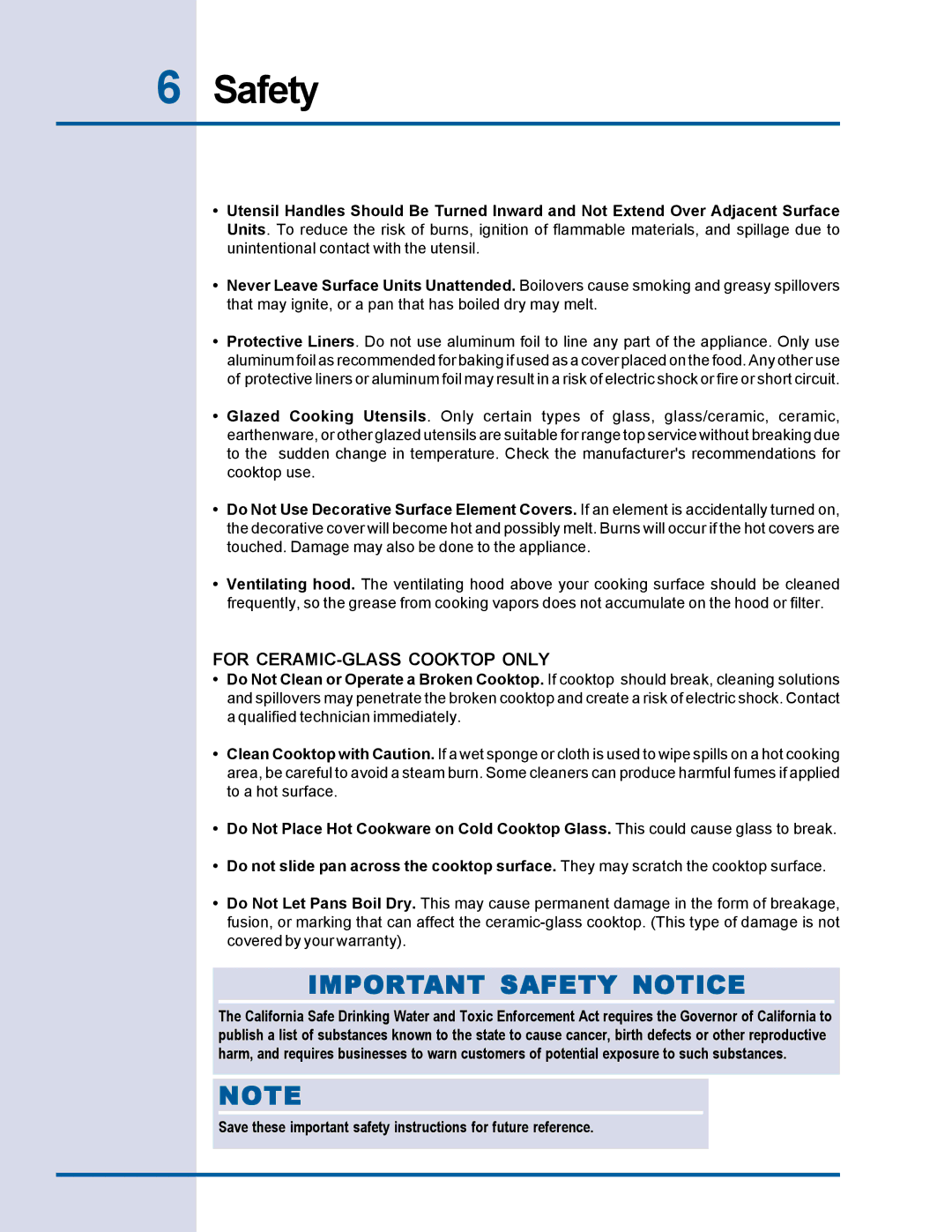
6Safety
•Utensil Handles Should Be Turned Inward and Not Extend Over Adjacent Surface Units. To reduce the risk of burns, ignition of flammable materials, and spillage due to unintentional contact with the utensil.
•Never Leave Surface Units Unattended. Boilovers cause smoking and greasy spillovers that may ignite, or a pan that has boiled dry may melt.
•Protective Liners. Do not use aluminum foil to line any part of the appliance. Only use aluminum foil as recommended for baking if used as a cover placed on the food. Any other use of protective liners or aluminum foil may result in a risk of electric shock or fire or short circuit.
•Glazed Cooking Utensils. Only certain types of glass, glass/ceramic, ceramic, earthenware, or other glazed utensils are suitable for range top service without breaking due to the sudden change in temperature. Check the manufacturer's recommendations for cooktop use.
•Do Not Use Decorative Surface Element Covers. If an element is accidentally turned on, the decorative cover will become hot and possibly melt. Burns will occur if the hot covers are touched. Damage may also be done to the appliance.
•Ventilating hood. The ventilating hood above your cooking surface should be cleaned frequently, so the grease from cooking vapors does not accumulate on the hood or filter.
FOR CERAMIC-GLASS COOKTOP ONLY
•Do Not Clean or Operate a Broken Cooktop. If cooktop should break, cleaning solutions and spillovers may penetrate the broken cooktop and create a risk of electric shock. Contact a qualified technician immediately.
•Clean Cooktop with Caution. If a wet sponge or cloth is used to wipe spills on a hot cooking area, be careful to avoid a steam burn. Some cleaners can produce harmful fumes if applied to a hot surface.
•Do Not Place Hot Cookware on Cold Cooktop Glass. This could cause glass to break.
•Do not slide pan across the cooktop surface. They may scratch the cooktop surface.
•Do Not Let Pans Boil Dry. This may cause permanent damage in the form of breakage, fusion, or marking that can affect the
IMPORTANT SAFETY NOTICE
The California Safe Drinking Water and Toxic Enforcement Act requires the Governor of California to publish a list of substances known to the state to cause cancer, birth defects or other reproductive harm, and requires businesses to warn customers of potential exposure to such substances.
NOTE
Save these important safety instructions for future reference.
